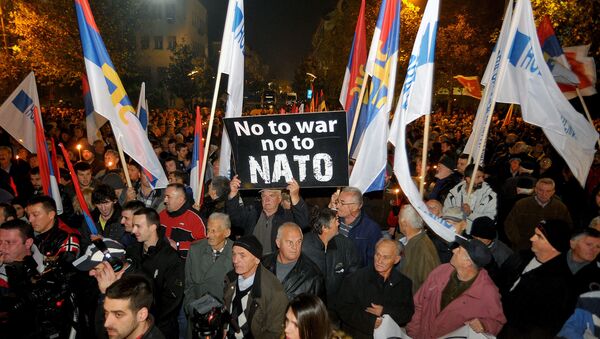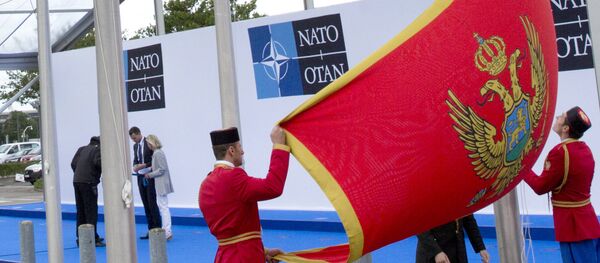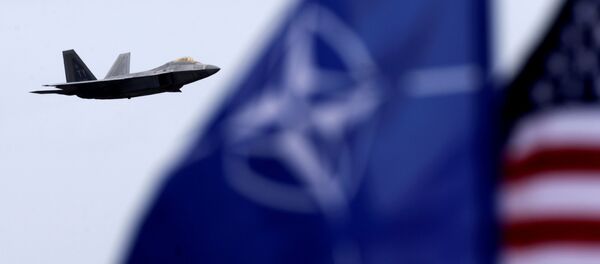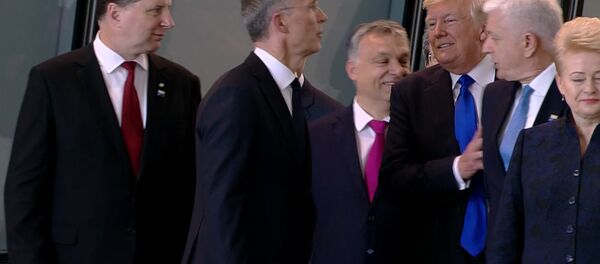Podgorica was invited to join NATO in December 2015, in the alliance's first expansion into Eastern Europe in six years. The government accepted the invitation, causing mass protests across the country. On May 19, 2016, NATO member states signed the accession protocol.
On April 25, US President Donald Trump signed the protocol on Montenegro’s accession to NATO, which was the final step in ratifying the document. On May 19, 2016, NATO member states signed the accession protocol.
According to Filip Kovacevic, a political analyst and adjunct professor at the University of San Francisco, Montenegro’s NATO membership will have destabilizing consequences for both the country and the entire region.
"Montenegro’s accession to NATO was already among the alliance’s priority goals back in the end of the 20th century. … The alliance and the Montenegrin government are likely to be planning further destabilization in the region. This scenario may result in the deployment of a large NATO force in Montenegro which would boost the alliance’s military presence in the Balkans," Kovacevic said in an interview with Sputnik Serbia.
According to the analyst, in the case of Montenegro, NATO will apply its usual strategy of maintaining control over peripheral member nations.
"This is what NATO’s strategy is about. Permanent instability and intimidation are NATO’s instruments to keep peripheral regions under control," he pointed out.
Furthermore, Kovacevic stressed that Montenegro is unlikely to play any significant role in making military and political decisions within NATO.
Kovacevic also noted that the NATO expansion nullifies any democratic procedures in Montenegro.
"The current Montenegrin government is a band of puppets who seize a monopoly on both domestic and foreign political decisions. This government is not legitimate. They don’t serve the interests of their people and this is the reason why a referendum [on the country’s accession to NATO] was not held. … This government will not protect the interests of the people," Kovacevic said.
"NATO has a number of internal issues. In recent years, European and American strategists have made up the concept of 'Russian threat.' The idea is to unite NATO members against the so-called Russian factor. NATO is dangerous but it is not as powerful as it seems," the expert concluded.
Russia has repeatedly expressed concerns over the further expansion of NATO to the east. In May, Moscow criticized the political course of Montenegro that sees them joining the alliance without holding a nationwide referendum.
Commenting on Montenegro’s accession to the alliance, Russian Foreign Minister Sergei Lavrov said that the move would not bolster NATO’s military capabilities and serves as a geopolitical project.





